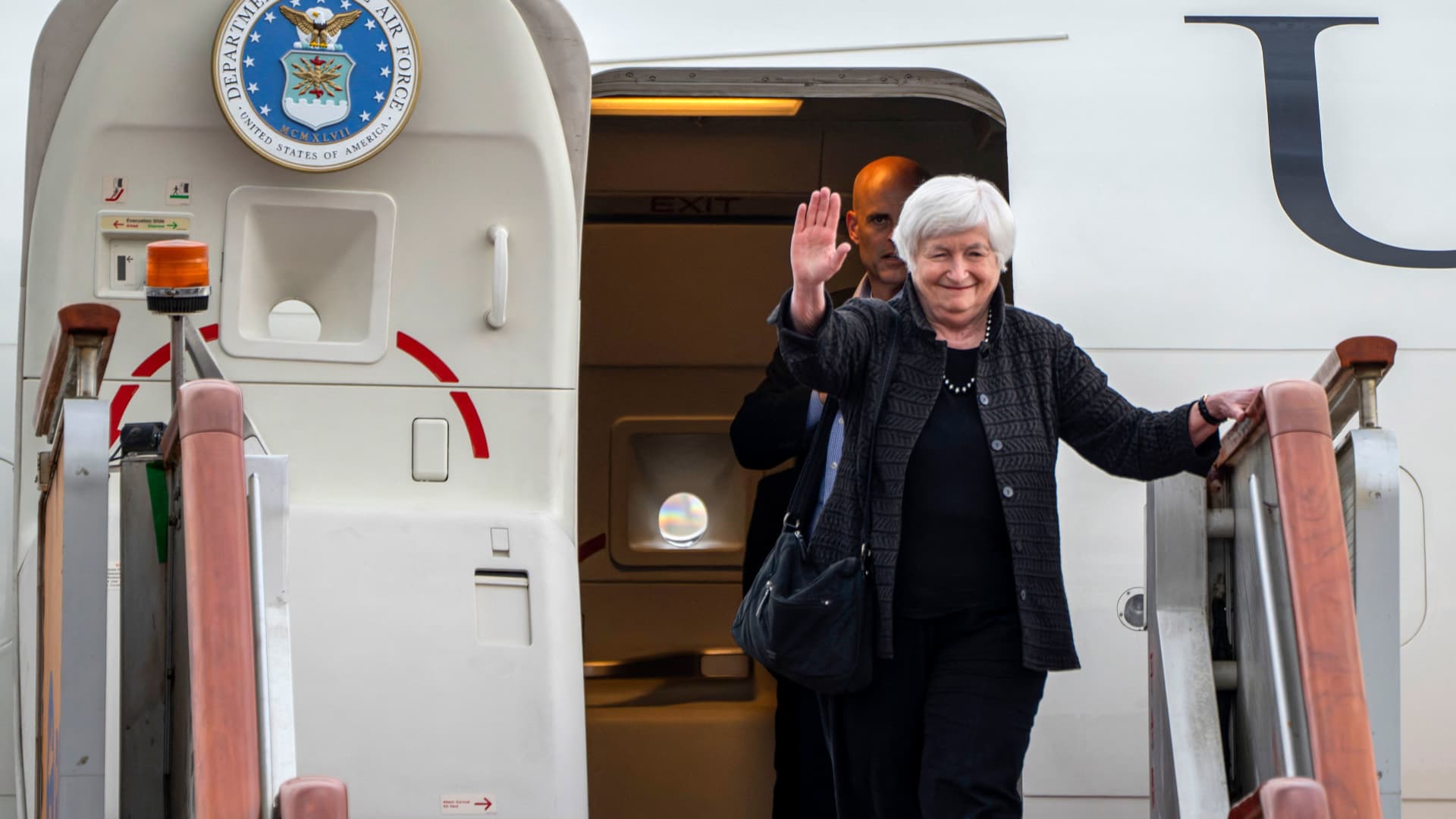U.S. Treasury Secretary Janet Yellen’s visit to China is “crucial” to ensuring that both countries continue talking to each other, said Eswar Prasad, an economics professor at Cornell University.
“The crucial element, which is embodied in Janet Yellen’s visit, is that the two sides keep talking on technical levels, but also at the very senior policy levels,” Prasad told CNBC’s “Squawk Box Asia” on Friday.
Tensions between the two countries have shot up in recent years, since the U.S.-China trade war started in 2018 during the Trump-era. Today, geopolitical tensions continue amid accusations over China’s purported spy balloon in U.S. airspace, as well as their battle for tech supremacy.
Yellen landed in Beijing Thursday on a four-day trip.
She is due to meet Premier Li Qiang on Friday afternoon, following earlier meetings with former Vice Premier Liu He and ex-central bank governor Yi Gang, the Treasury Department said.
Her visit comes weeks after Secretary of State Antony Blinken’s visit to Beijing — the first high-level meeting between the two countries after months of tensions.
“Damage control is really the key,” Prasad told CNBC, adding that Chinese officials can deal with anti-China rhetoric, as long as they do not translate into hostile actions that could keep China from its economic development.
“Officials in China are very attuned to the election cycle in the U.S. and they recognize that with November 2024 already looming, there is a prospect of anti-China rhetoric getting even hotter in Washington,” he said.
“I think the hope is that they can ward off any further actions that they perceive as being hostile towards China.”
The Biden administration’s attitude toward China has been “a little bit less confrontational” this year, said Andy Rothman, investment strategist at Matthews Asia, who pointed out there could be better cooperation, engagement and trust going forward.
“U.S.-China relations aren’t going to get better … But I think the risks of an accident spiraling out of control into a crisis have gone down a lot over the last couple of months,” Rothman told CNBC on Friday.
The world’s second largest economy has seen a slew of disappointing economic data in the second quarter, fueling concerns that the post-Covid rebound may be weaker than expected.
Beijing has insisted that China’s growth is still on track to reach its the target of around 5%, but Wall Street banks have been downgrading their GDP forecast for China, citing economic turbulence ahead.
China’s economy is at a “perilous juncture,” Prasad said.
He highlighted that domestic sources of growth — such as the real estate market, infrastructure investment and government spending — have weakened and will likely stay weak.
“Tamping down the temperature on the U.S.-China relationship certainly would help in terms of domestic economic activity, and at the margin, at least in terms of helping to avoid confidence from falling any further,” the economist added.
The two countries need to “compartmentalize” their geopolitical and economic issues for progress in their relationship to be made,” Prasad said.
Rothman doesn’t expect geopolitical tensions to have a “significant impact” on China’s economy, and said a domestic demand driven economy and consumer-led recovery are already underway.
Still, he agreed that American investors will continue to remain “really, really cautious” on China and improvements in the two countries relationship will unlikely to be seen through the end of 2024.





